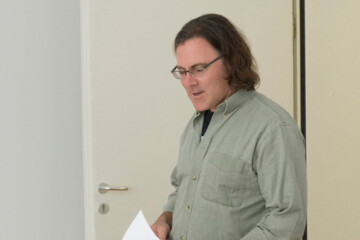Strange how many terms spring to mind with respect to historicisation. But, then again, historicisation is a strange operation, or at least, it ought to be made strange, so that a historical process is made to appear in → reconstruction as strange, as implausible yet undeniable as it was when being lived. So I guess my keyword in this regard has to be “estrangement”. Estrangement is a polysemic notion, to be sure – that’s part of its inherent strangeness – but I am hearing it in this instance with Brechtian echoes – an English rendering of the German Verfremdung. Or better still, the verbal form, verfremden – to make strange, foreignise, make odd, weirden, sunder appearance from a soul, and basically break down the trappings of lingering or → residual self-→ evidence. Come to think of it, I think I prefer the verb form in English as well, to estrange resonates not only as an active process but also as a kind of implicit imperative — the commandment of historicisation as I see it! I feel a still greater temptation to add a thought or two regarding the ways and means of estranging. All the tried and true Brechtian techniques are fine; the Russian formalists’ ostrenanie has a definite kinship. But I am above all thinking of another mode of estranging, which can only be expressed through another word: decreation. It’s an unusual word, but not a neologism, having been coined and conceptualised by the French philosopher Simone Weil in the 1930s, who used it to escape the sterile opposition between creation and destruction (which seems to me to be precisely what is at issue in historicisation): “Decreation: to make something created pass into the uncreated. Destruction: to make something created pass into nothingness A blameworthy substitute for decreation.” [1] It’s a pithy condensé of her thought, but suffice it to say that if to historicise is to estrange, that may be because it is a de-creative process, as destructive of the self-evidence of the merely existent (whose only merit is to exist) as it is creative of undeployed historical potential, passing the created into the uncreated.


